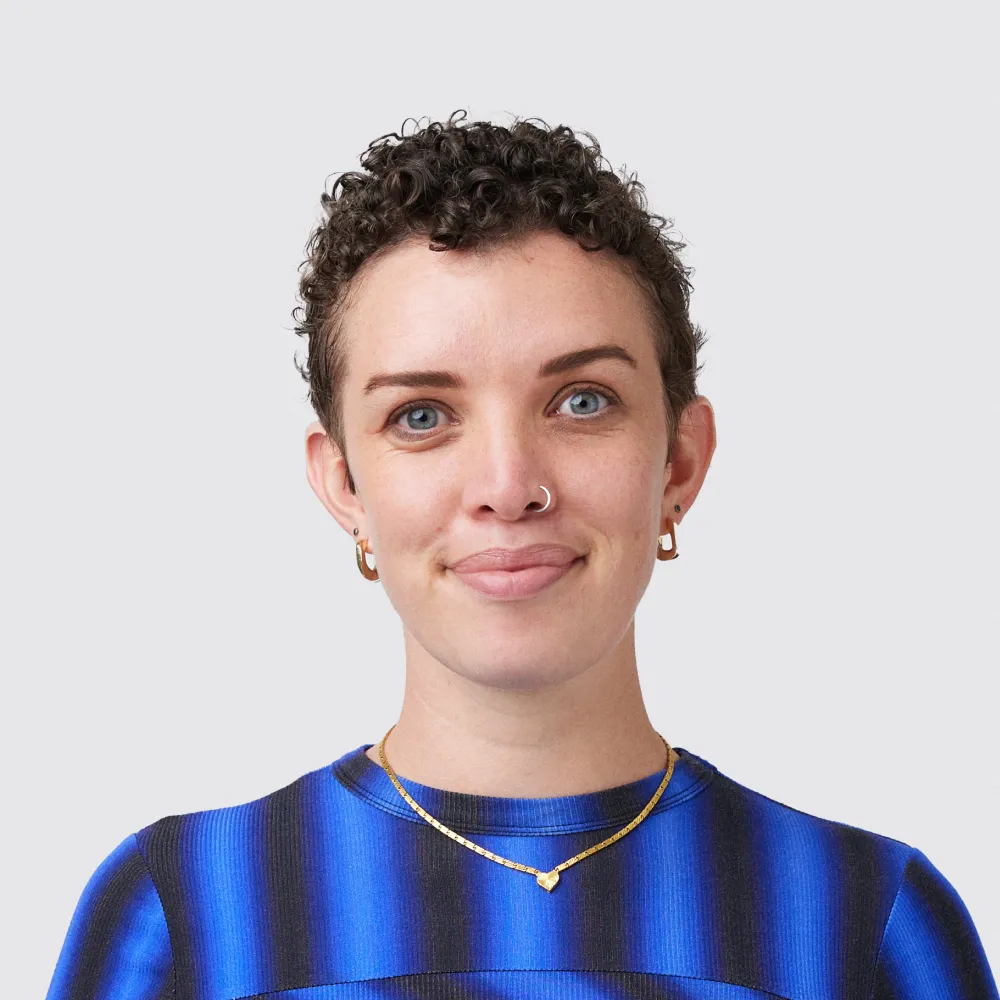As CEO of The Social Studio, Dewi Cooke oversees free training for refugee and migrant creatives, a manufacturing studio, a retail business, and a repair service.
But the real work, she’s learned, isn’t teaching technical skills—it’s rebuilding confidence shattered by displacement, language barriers, and hostile systems. Here, she shares the stories behind the impact.
Dewi Cooke, CEO, The Social Studio
Hayley Tasker, Senior Strategic Designer, Today
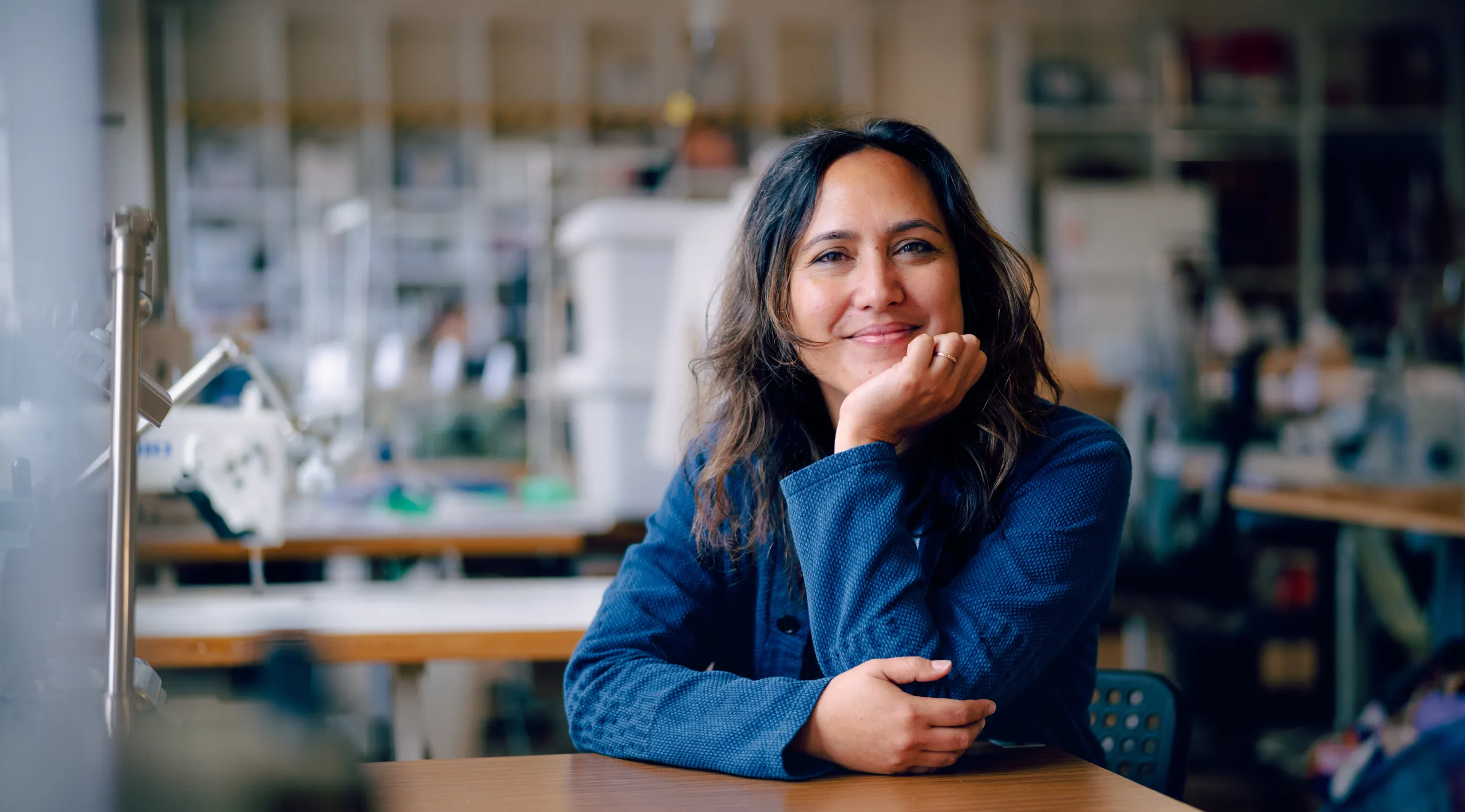
When somebody asks you what you do, how do you explain it?
I’m the CEO of The Social Studio, but that title encompasses a lot. I look after an organisation that offers free training to refugee and new migrant creatives. We have a manufacturing studio, a retail business, run creative projects, and also have a relatively new mending and repair service.
In between all that, I also help take out the bins or film content when needed. I get my hands dirty across a bunch of stuff, as well as figure out the strategic direction of this extensive and messy network of good things.
Why do you do what you do?
The Social Studio is just this perfect combination of a lot of the things that I’m really interested in. I spent a long time as a journalist, covering social affairs and the arts, and this feels like a happy Venn diagram of those two areas intersecting.
There’s something physical about the environment that I really love—being around people who are making and doing and being able to ride the coattails of that.
I really enjoy talking to people every day and having the pleasure and privilege of getting to know people from all different parts of the city, different cultural backgrounds, and faith backgrounds. It’s something that journalism gave me, and there are few jobs that are like that. So I love that I found it again here.
The impact we see comes through the support and encouragement we wrap around students to make those small but not insignificant shifts in their lives. We feel really proud of those changes.
Dewi Cooke
Can you tell us about the impact at The Social Studio? How does it actually show up for you in your day-to-day?
We want to see people build confidence so they can set goals for themselves and move into their next phase of life through meaningful employment or access to further education; those are the big-picture goals.
There are some for whom it’s a very linear success story: they’ll go on to higher study or set up a business, and that’s really exciting to see. But we also see the small—but not trivial—ways people's lives are impacted through The Social Studio. We’ve had people who’ve had either negative experiences within education due to learning difficulties, or who’ve had very fractured experiences with education because of being forcibly displaced by having to escape war, and this is the first time they’ve ever been able to sustain and maintain study.
Our Certificate III program goes for two years, so it’s quite a big commitment. And at the end of that, that’s a really significant thing for those people to have, to have shown up every day and committed themselves to something, especially those who have lots of other responsibilities in their lives to find that time for themselves.
A former student had a lot of trauma from an injury that she’d suffered, which meant that anytime it rained, she wouldn’t want to leave her house, and that meant she was away from class a lot for the first year. But by the end of her fourth semester with us, she was coming on rainy days, and that’s massive. This is a person who was otherwise confined to her home, and that’s not something that The Social Studio did for her; that’s something that she did for herself.
The impact we see comes through the support and encouragement we wrap around students to make those small but not insignificant shifts in their lives. We feel really proud of those changes.
By the end of her fourth semester with us, she was coming on rainy days, and that’s massive. This is a person who was otherwise confined to her home, and that’s not something that The Social Studio did for her; that’s something that she did for herself.
Dewi Cooke
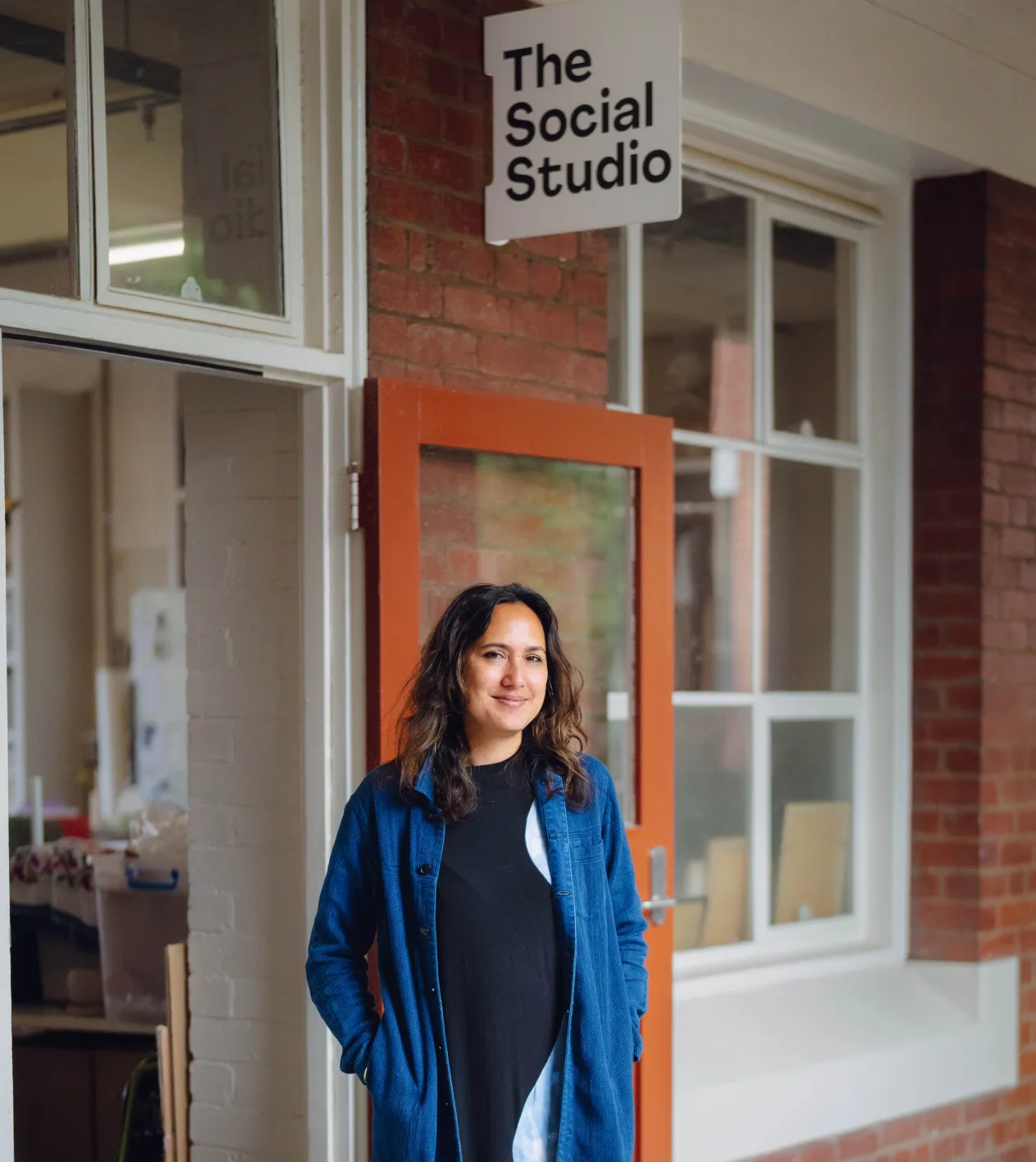
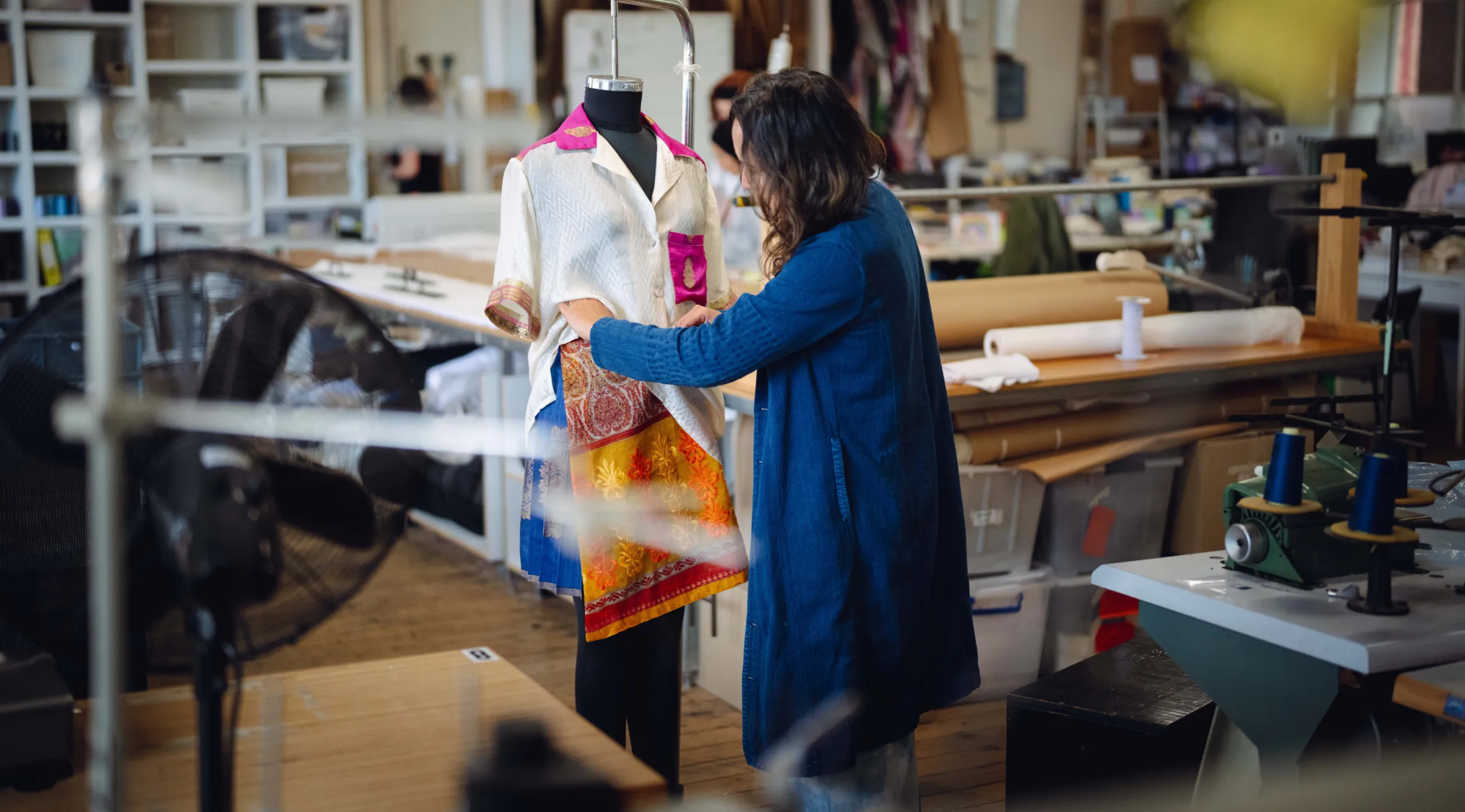
You mentioned a network of good things that you do. How do these three roles of educator, retailer and production house reinforce one another, and are there tensions you have to navigate to balance them?
We hire through the school into manufacturing or retail, and we try to give work opportunities to students and alumni. Presently, we’ve got one alumni in our manufacturing team who's been with us for three years. Since I joined in 2020, we’ve had seven students and alum through on paid training into manufacturing, in the form of three-month traineeships, with the view that they then transition into other work.
We’re always looking for ways or places to put students and alumni, but the difficulty is that we’re a small organisation and, you know, we can’t hire everybody, so that’s a tension.
For those interested in starting their own brands and businesses, we also assess whether they’re suitable for our shop. We’ve found over the years, through the experiences of previous iterations of The Social Studio, that we have to be mindful of getting students’ work in too soon. Sometimes, they’re not ready for feedback or the possibility that they may not sell, because you don’t want to shake people’s confidence while they're on that learning journey.
Everybody who comes through the studio as a student or participant just wants to stay and be part of it. This is where they want to work, this is where they want their next step to be, and unfortunately, we can’t accommodate everybody.
Even the way we manufacture isn’t realistic for a standard career in the industry. We’re a very small-scale, almost bespoke level of manufacturing, whereas the sorts of jobs that might exist for students beyond The Social Studio are much more like a factory, and that’s not what they’re interested in.
So we do need to manage students’ expectations: we’ll give them as much experience as we can, but at some point they have to spread their wings and fly the nest.
What surprised you most about what your graduates need to succeed beyond technical fashion skills?
I don’t think I appreciated how vital confidence-building was when I first started here.
If you talk to people in settlement services, they are very aware of this, and it makes sense, doesn’t it? If you land in a new country and suddenly you can’t speak the language, you feel capable, but nobody recognises your previous experience, and you can’t explain what’s affecting you, your confidence takes a hit. I didn’t realise how much of the work we do is about building confidence and helping people reach a point where they believe in themselves.
For many people, coming to the studio is, in itself, a huge step. It’s a feeling of stepping out of their comfort zone. So, from the moment that they come through the door, we really have to be all in on being on their side.
I’ve realised over time that it’s about being really excited for them, really enthusiastic and full of praise, and that, slowly, they’ll believe in themselves.
Do many of your students find Australia quite a hostile experience when they’re starting out here?
You know, we don’t intentionally talk about it a lot. But it comes out when we’re just sitting around chatting. There are loads of stories that are pretty shocking in terms of racism and just the fear that they’ve experienced. Sometimes it’s intentional, sometimes it’s unintentional, sometimes it’s systems being really, really punitive —many of them have had terrible interactions with Centrelink, for example. But on the flip side, they’ve also had some really great support from community services designed to advocate for them.
One of our students had come from Somalia, and her daughter was in the pram, and she was in Melbourne taking the tram for the first time; she’d never taken public transport before because she’s from rural Somalia. She didn’t know she needed a ticket and then the inspectors got on and she got so scared because they’re in uniform and she thought that they were going to take her child from her, and all she knew how to say was yes and no, and she just kept saying no, no, no, no, no, and she was so distressed. Fortunately, they could see how distressed she was. Still, you just can’t imagine how that feels, because her experience with people in uniform and authority is entirely different from most people's growing up in Australia.
What’s a barrier or challenge facing your students that most people outside refugee or migrant communities wouldn’t think about, that significantly impacts their path to employment?
Unless you are within those communities, I don’t think anyone really thinks about settlement. Settlement services are funded for a set period of time when someone comes to Australia, but settlement is actually a really long process; it’s not just 18 months or five years, or whatever the funding tiers are.
Even once you get your citizenship, it’s not done, and there are lots of reasons for that.
In terms of finding work, there’s a lack of recognition of people’s prior experiences, and a lack of willingness to train people who don’t have the elements of a perfect CV.
And then there’s geographic isolation to consider. There are so many communities living so far out of the city now, who don’t have good access to public transport and don’t have the same level of amenities that we enjoy in the inner city. But that’s where affordable housing is.
Settlement is such a big concept, and we’ve got some people here who’ve been in Australia for 10 or 15 years, and they’re still figuring out their way around systems and places, let alone if you’re newly arrived.
What’s one thing about your model that is non-negotiable?
Time is a non-negotiable. Giving people enough time to make it to class and time off when they need to attend to cultural business or community issues is all about a deeper level of understanding, and it can be tricky sometimes.
Time is linear, and there are definitely hours in the day when we need to show up for each other. Still, in the end, The Social Studio needs to be a place where people know that if life gets in the way, they won't be punished and that they’ll always have a place to come to for support and encouragement.
What is your dream opportunity for creating a positive impact in the world? And what needs to change for that to happen?
There are so many possibilities.
If I think about The Social Studio model, it’s this highly relational, deeply resourced model where there’s individualised attention to people and wraparound support that we know works, not just for us, but in other sectors as well.
In our Cert III program, our student retention rate is 80-90%, which is significantly higher than that of vocational education programs at the same level across the country.
I would love to see that rolled out on a larger scale, with government recognition that not just people from refugee or migrant backgrounds will benefit, but also young people who are disengaged from work or study, and job seekers in their 50s who are trying to find a place in the labour market. It would work for everyone who struggles to access mainstream employment.
I don’t know if it’s the government or philanthropy that could fund this, but we all need to recognise that while it takes a lot of work to get people through, there are incredible positives to it; it diverts people from the justice system, diverts people from unemployment, and long-term, the cost is smaller.
In our Cert III program, our student retention rate is 80-90%, which is significantly higher than that of vocational education programs at the same level across the country.
Dewi Cooke
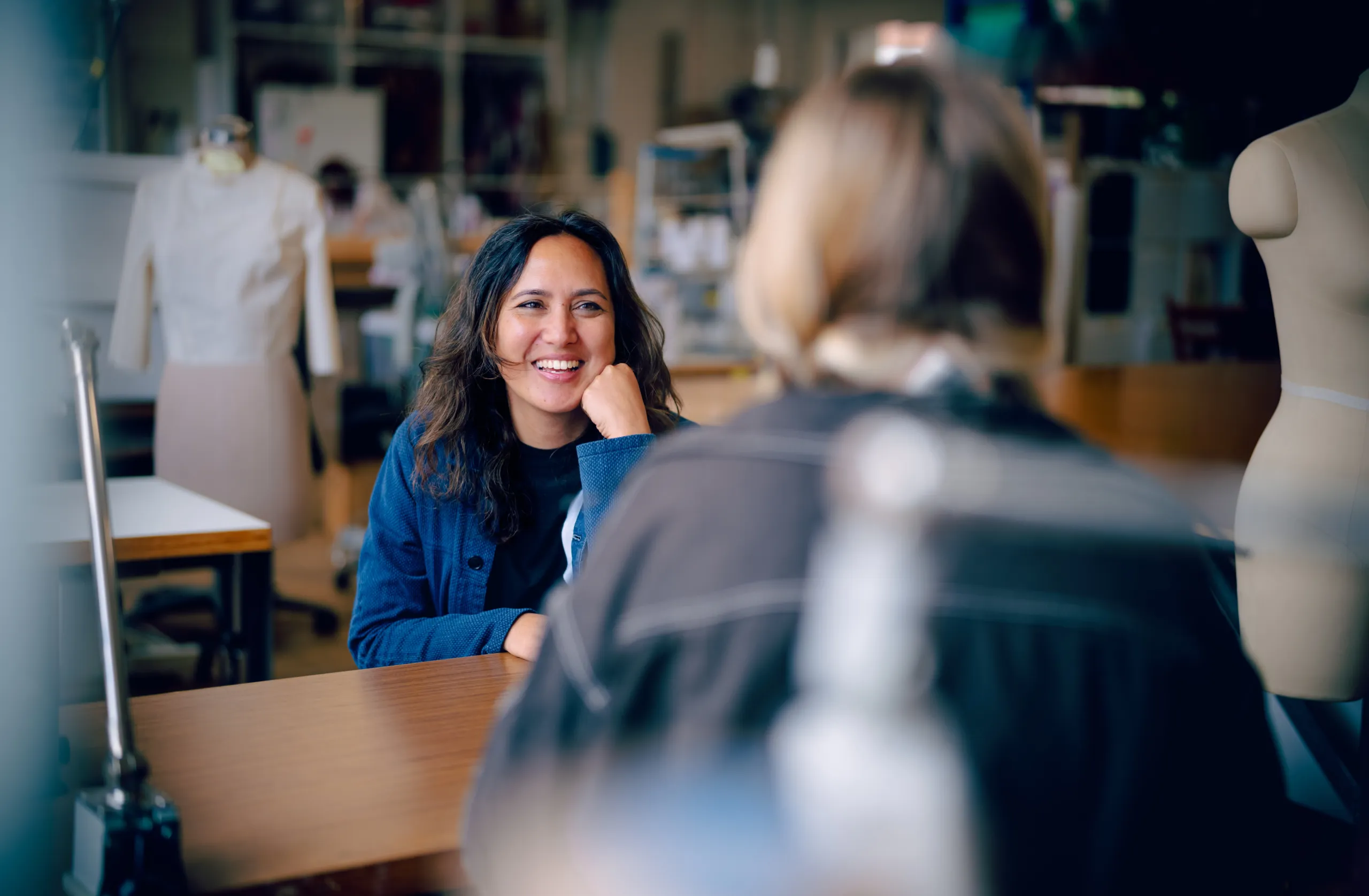
Thanks, Dewi. How can our readers support The Social Studio?
Philanthropy is harder than it’s ever been. So the community’s support is what we rely on to continue doing the work we do. If people are in a position to support or volunteer, we always love to hear from them.
